Ranking Gregg Popovich and the Greatest Head Coaches in NBA History
Ranking Gregg Popovich and the Greatest Head Coaches in NBA History
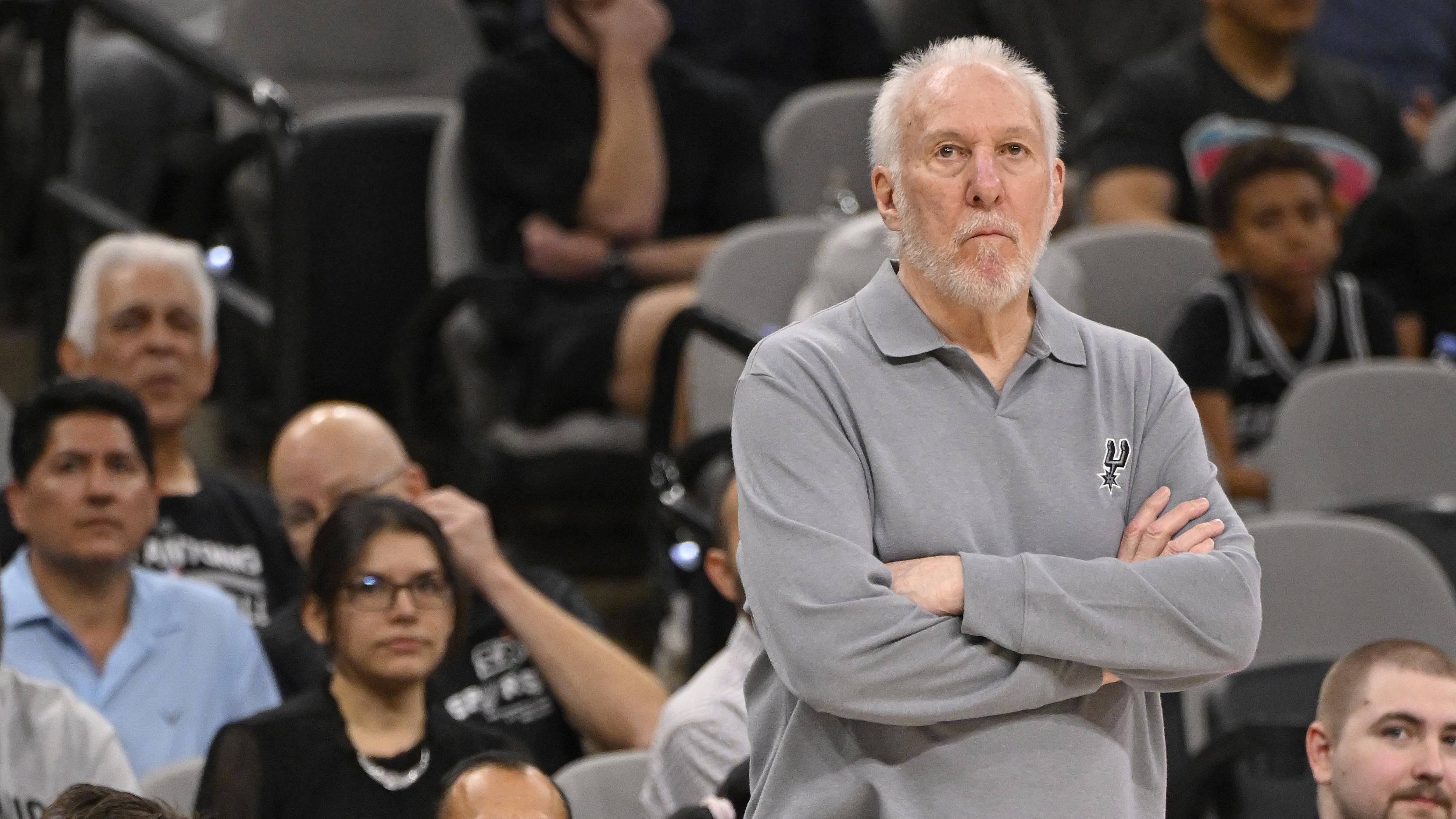
After nearly three decades at the helm of one of the best and most stable organizations in the NBA, Gregg Popovich has stepped down from his duties as head coach of the San Antonio Spurs, according to ESPN's Shams Charania.
BREAKING: Gregg Popovich will no longer be Head Coach of the San Antonio Spurs and is transitioning full-time to Team President, sources told ESPN. The iconic Popovich is a Basketball Hall of Famer, the NBA’s all-time winningest coach, and led the Spurs to five championships. pic.twitter.com/mbtUtpgA4V
— Shams Charania (@ShamsCharania) May 2, 2025
Pop transitioning to this new role gives us a perfect reason to examine his place among the greatest coaches in NBA history. His resume gives him a strong case to be No. 1, although he has some strong competition for that spot.
Based on career win totals, winning percentage in both the regular and postseason, total championships, their place in NBA lore and a healthy portion of subjectivity, we've ranked the five best head coaches in league history as of May 1, 2025.
5. Steve Kerr
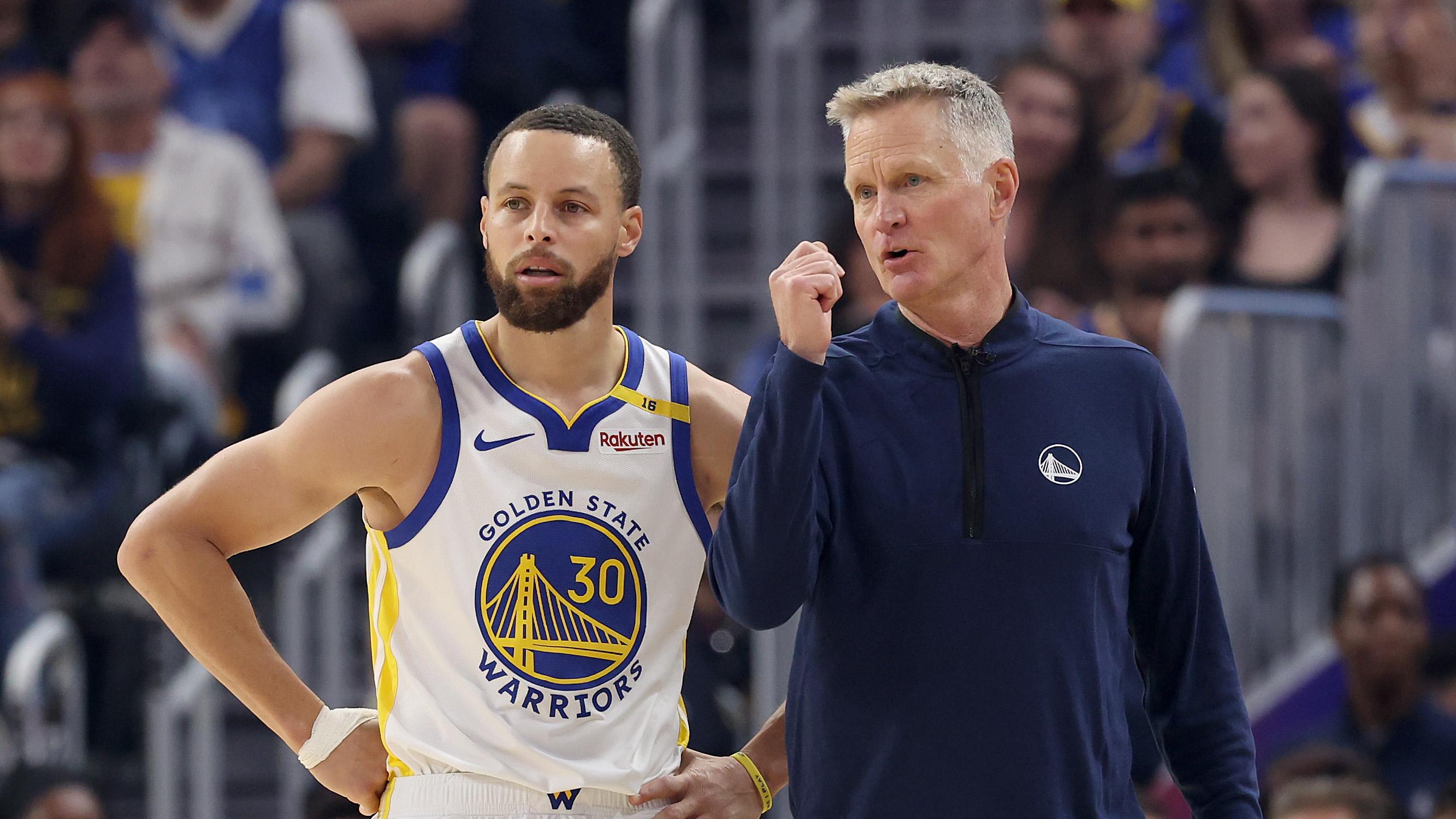
Career record: 567-308 in the regular season (.648), 102-43 in the playoffs (.703), four championships
Now that Popovich has retired from coaching, Golden State Warriors head coach Steve Kerr is the last remaining active coach on this list. His resume still may have a few lines yet to be written, but he has clearly earned this spot even with his candidacy unfinished.
Among head coaches with at least 500 games, Kerr is fifth in regular-season winning percentage. More importantly, among those with at least 50 playoff games, he's first in postseason winning percentage. And Kerr's four championships trail only Phil Jackson, Red Auerbach, John Kundla (who last coached in 1959), Popovich and Pat Riley.
Beyond the numbers and his place on the leaderboard, Kerr's vision for the Golden State Warriors' offense was a key ingredient in a modern dynasty. Together with Stephen Curry, he revolutionized the way the game is played.
Three-point volume league-wide has skyrocketed since Kerr took over for Mark Jackson in Golden State. Curry went from an exciting up-and-comer to a two-time MVP and one of the 10 greatest players of all time.
Kerr also unleashed Draymond Green, who's become one of the most unique defenders and best point forwards in NBA history.
Kerr's read-and-react, free-flowing and pass- and motion-heavy offenses that fueled the rises of both stars should be the ideal for most NBA teams.
4. Pat Riley
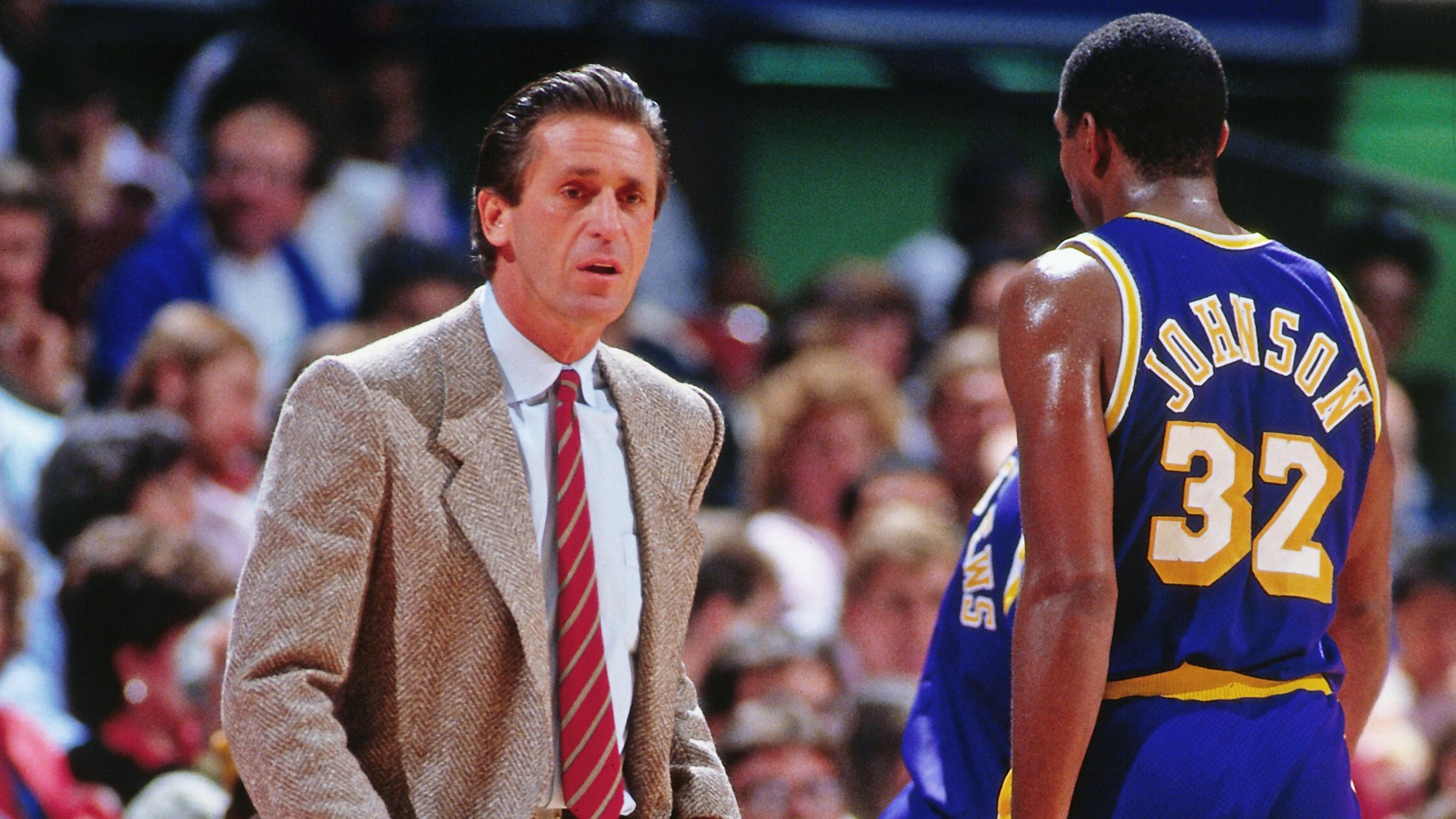
Career record: 1,210-694 in the regular season (.636), 171-111 in the playoffs (.606), five championships
Pat Riley was behind the "Showtime" Los Angeles Lakers, one of the best and most exciting teams in NBA history. He led them to four NBA championships and three other NBA Finals appearances from 1982 through 1989.
Over the course of eight years, he was on the sidelines for the Finals in seven different postseasons. If that wasn't enough, he also had a Finals appearance with the New York Knicks in 1994 and a return to coaching for a fifth title in 2006.
Along the way, Riley fostered intense commitment to detail on all of his teams. The uptempo style he installed for the Showtime Lakers was revolutionary, but he found success with a variety of different stars.
In L.A., he had superteams led by Magic Johnson, perhaps the best playmaker in NBA history, and he had to manage the sometimes outsized personality of Kareem Abdul-Jabbar. In New York, he had the big, bruising Patrick Ewing-led Knicks that often beat their opponents into submission. And with the Miami Heat, he had a superstar wing on the rise (Dwyane Wade) and a post-prime center (Shaquille O'Neal) who had to cede the alpha status he'd held for years.
Riley managed all of that to the tune of 1,200-plus career regular-season wins and five championships.
3. Red Auerbach
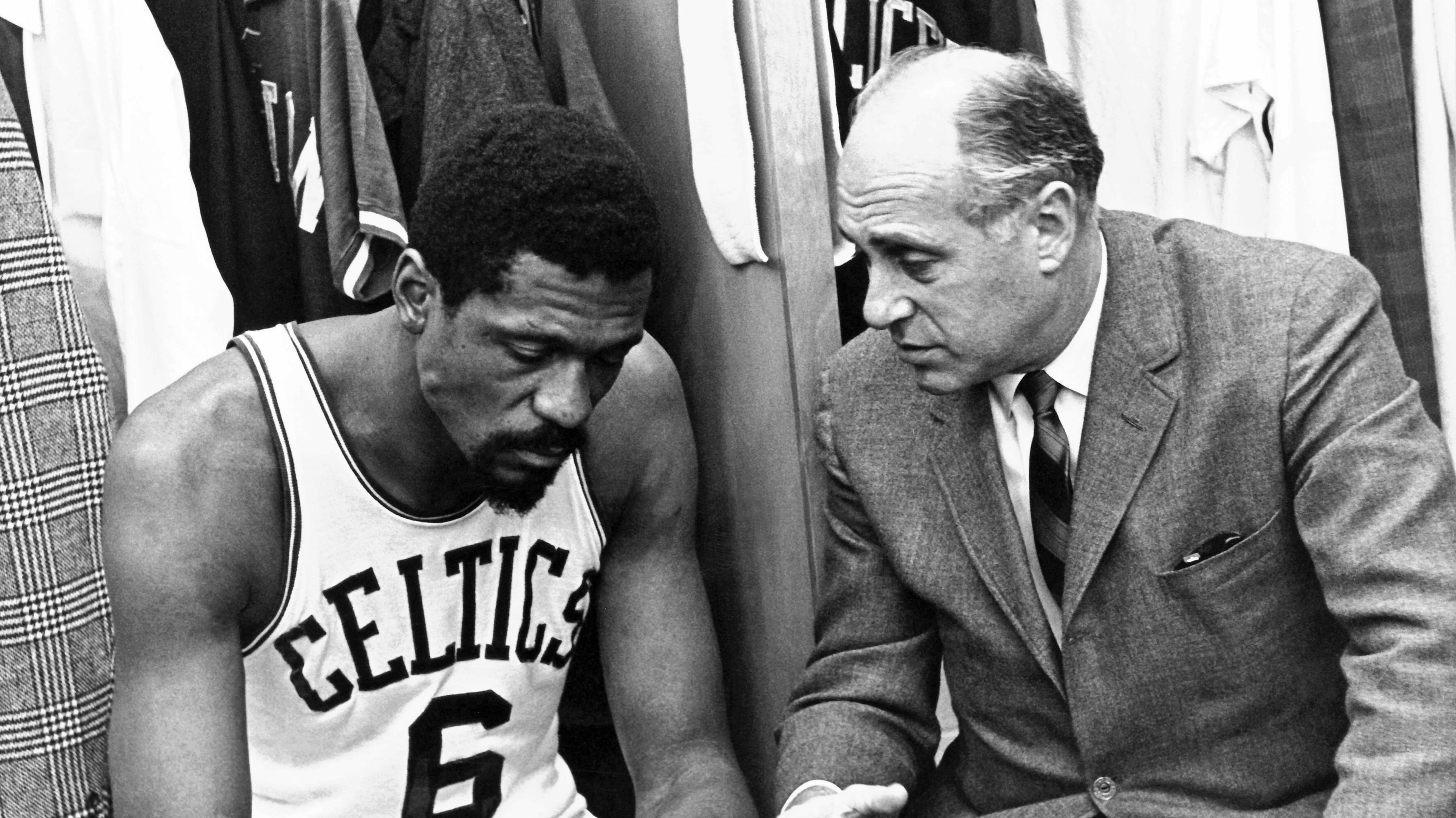
Career record: 938-481 in the regular season (.661), 99-69 in the playoffs (.589), nine championships
There's always some internal debate on how to weigh the 1960s Boston Celtics' success. The league was roughly a third of the size it is now, and basketball itself was still relatively young. When you look back on the footage of those early NBA seasons, it almost seems like they're playing a different sport.
But nine championships are nine championships. That raw total alone makes it impossible to keep Red Auerbach out of the top three.
Beyond that, his coaching was instrumental in the development of Hall of Famers like Bill Russell, Tom Heinsohn, Bob Cousy and K.C. Jones, just to name a few. His philosophies helped mainstream fast breaks. He emphasized team-first basketball in a way coaches throughout history have tried to emulate.
And like Riley's slicked-back hair or Phil Jackson's zen approach, there's something iconic about Auerbach and the many images of him smoking a cigar in celebration (or contemplation).
2. Gregg Popovich
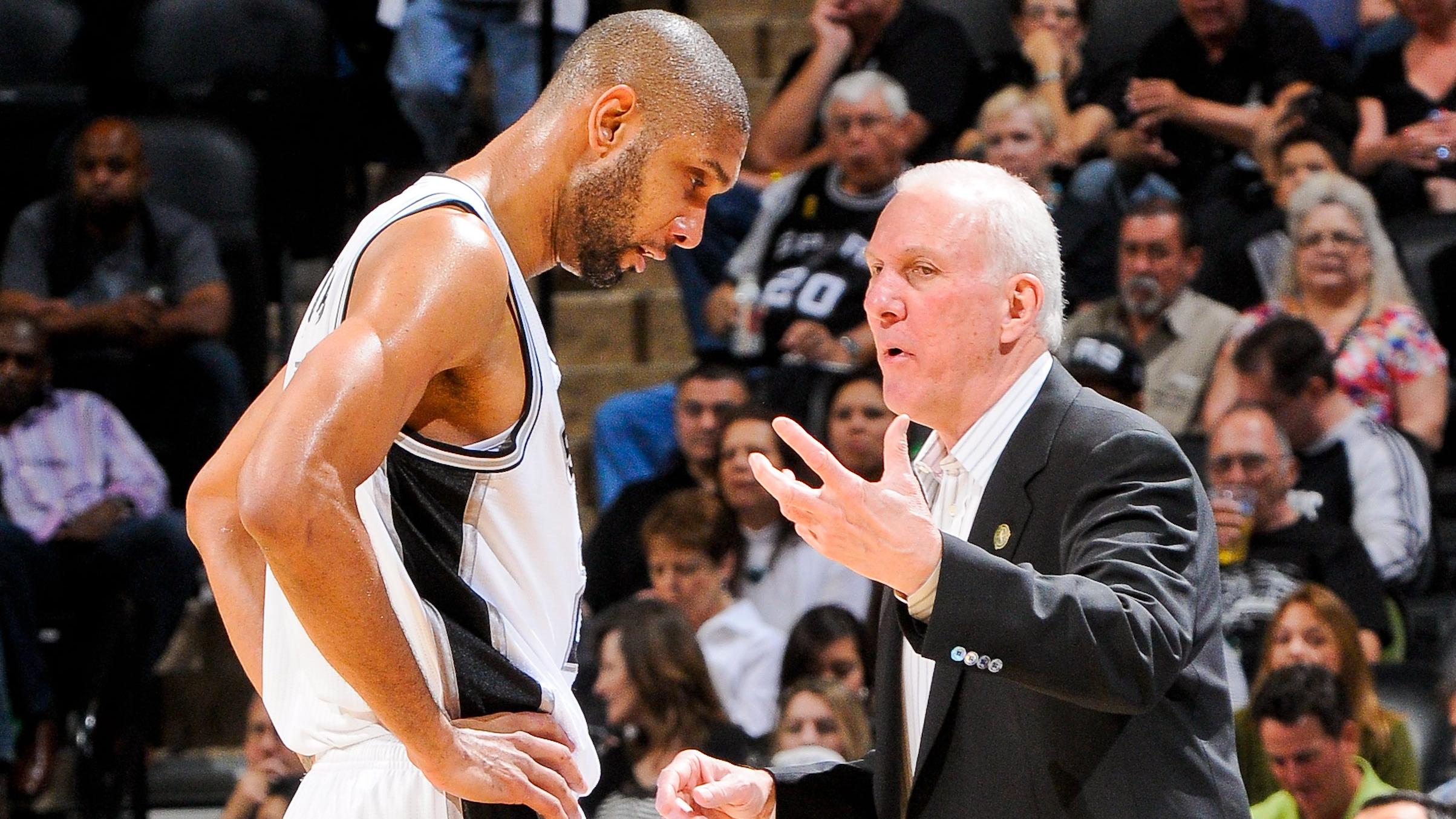
Career record: 1,422-869 in the regular season (.621), 170-114 in the playoffs (.599), five championships
Gregg Popovich coached his first full season for the Spurs in 1997-98. From the start of that campaign through 2018-19, San Antonio was first leaguewide in winning percentage and had over 200 more wins than any other team.
Over that span, the Spurs were first in points allowed per 100 possessions, almost three points clear of second place in that category. Their plus-6.2 average point differential was also first. The difference between the Spurs and second place in that category was about the same as the distance between second and 25th.
For well over two decades and across multiple leaguewide philosophical shifts, Popovich's Spurs were consistently dominant in a way we've never seen from other modern organizations.
His teams played connected, swarming defense. Their ball and player movement were often inspiring. That was especially true of the 2013-14 squad that eviscerated the Miami Heat in the NBA Finals despite being much older than its superteam opponent.
The way that Popovich approached roster depth, rotations and load management were key ingredients for lengthening the careers of Tim Duncan, Manu Ginobili and Tony Parker.
There's a real argument to have Pop as the greatest coach in NBA history. Without question, he's at least in that conversation.
1. Phil Jackson
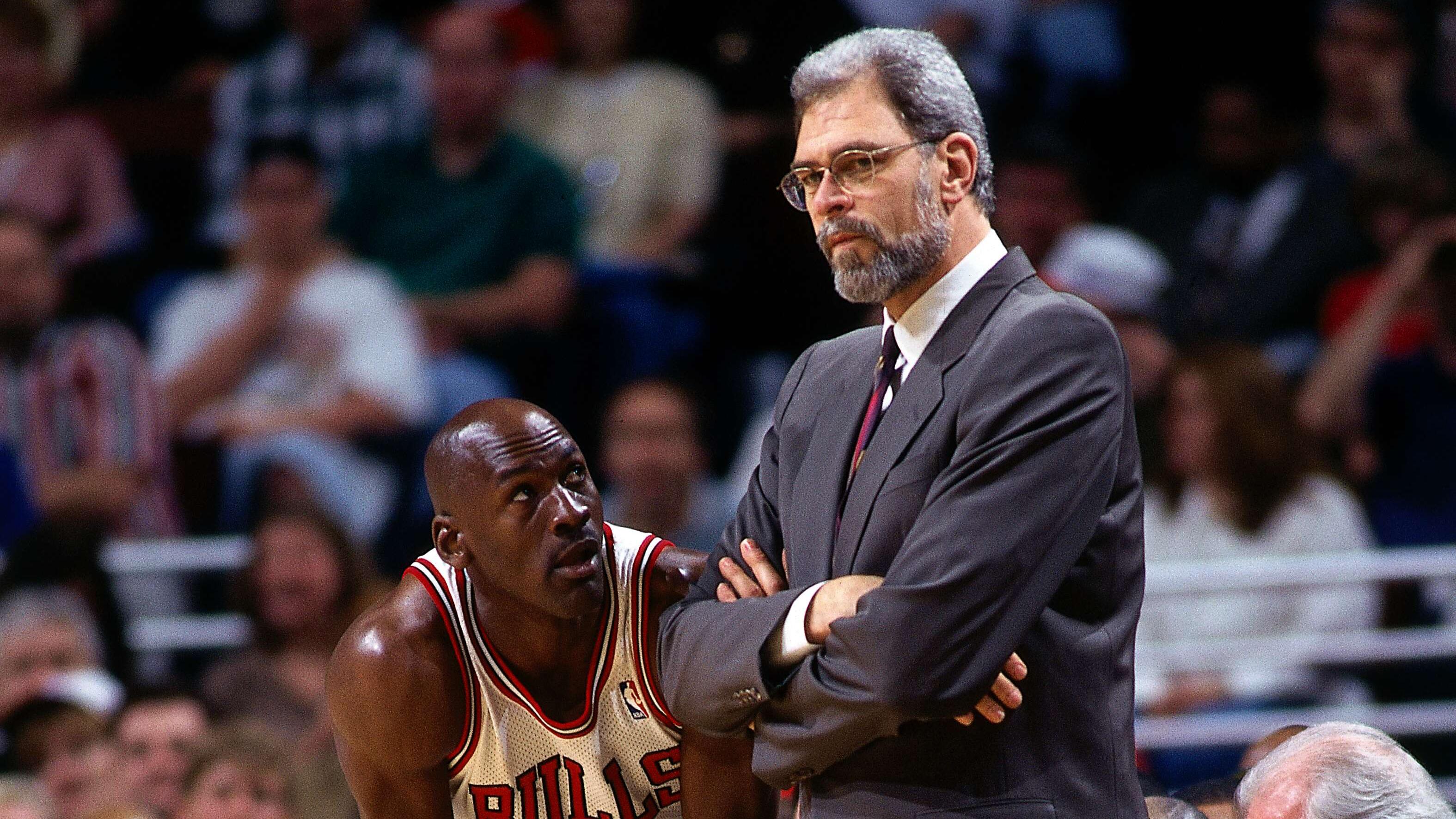
Career record: 1,155-485 in the regular season (.704), 229-104 in the playoffs (.688), 11 championships
As great as Popovich was, Phil Jackson's case for this honor feels a shred stronger for a few reasons.
First, he topped Pop in both regular-season and postseason winning percentage. More importantly, he won more than twice as many championships in roughly the same era.
While Popovich did the bulk of his damage with the same superstar (Duncan) and a pair of other stars (Parker and Ginobili), Jackson took three—maybe even four, depending on how you look at the Chicago Bulls—dramatically different cores to the top of the league.
There was, of course, Michael Jordan and Scottie Pippen's Bulls. The second threepeat Bulls, which featured Kerr and Dennis Rodman, were quite a bit different from the first. There was the early 2000s Lakers with Kobe Bryant and Shaq. And there was the late 2000s Lakers with Kobe, Pau Gasol and Lamar Odom.
Some of Jackson's most important principles, like his legendary triangle offense and his zen approach to coaching, were present throughout. But he had to work with different players and player types in each of those runs.
Though some may try to knock Jackson's case with some form of, "well, of course he should've won, he had Jordan, Shaq, Kobe, etc.," that could also be a point in his favor.
In the NBA, managing some of the biggest personalities and egos in sports is every bit as important as Xs and Os. It wasn't always perfect, but Jackson managed to get Jordan and Pippen, Shaq and Kobe, and finally, Kobe and Pau all rowing in the same direction for long enough to secure multiple titles with each duo.
In the wake of Popovich's retirement, Jackson remains at No. 1.






